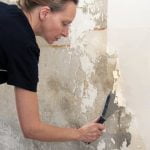The quality of care provided in nursing homes is a critical issue that affects the well-being of residents. By understanding the current state of nursing homes, identifying challenges, and areas for improvement, we can work towards ensuring the highest standard of care for individuals in these facilities.
This article aims to explore various strategies and initiatives to enhance the quality of care in nursing homes, focusing on staff training, technology utilization, creating a supportive environment, effective communication, resident empowerment, regulatory compliance, and emerging trends.
As the population continues to age, the demand for nursing home care is increasing. However, many facilities face challenges such as staffing shortages, lack of resources, and regulatory issues that impact the overall quality of care provided. Addressing these challenges and finding areas for improvement is crucial in ensuring that residents receive the best possible care.
Improving quality care in nursing homes is not only important for the residents’ physical health but also their emotional and mental well-being. It requires a multifaceted approach that encompasses various aspects such as staff education and training, technological advancements for patient monitoring and care, creating a positive environment for residents and staff, effective collaboration among healthcare professionals, resident involvement in decision-making processes, regulatory compliance, and adopting emerging best practices.
This article will delve into each of these areas to provide insights on how to achieve optimal care in nursing home settings.
Importance of Improving Quality Care in Nursing Homes for the Well-Being of Residents
Improving the quality of care in nursing homes is crucial for enhancing the well-being and overall experience of residents. The current state of many nursing homes presents numerous challenges, but there are also several areas for improvement that can make a significant difference in the lives of residents.
1. Well-trained and educated staff: One of the key factors in improving quality care in nursing homes is ensuring that staff members receive adequate training and education. This includes proper training on handling medical equipment, administering medications, providing physical therapy, and understanding the specific needs of elderly residents. Additionally, ongoing education programs can keep staff updated on best practices and new developments in the field.
2. Technology and innovation: Another important aspect to consider is the use of technology to improve patient care and monitoring. This can include electronic health records, telemedicine services, medication management systems, fall detection devices, and more. By leveraging technology effectively, nursing homes can enhance the quality of care provided to residents while also streamlining administrative processes.
3. Supportive environment: Creating a supportive and inclusive environment for both residents and staff is essential for improving quality care in nursing homes. This involves fostering a sense of community, promoting mental and emotional well-being, and providing opportunities for social engagement. Staff members who feel supported are more likely to provide better care, while residents who feel valued are more likely to have an improved quality of life.
By implementing these strategies along with others outlined in this article title “How to Improve Quality Care in Nursing Homes“, we can make meaningful progress towards enhancing the overall quality of care provided in nursing home facilities.
Implementing Staff Training and Education Programs to Enhance Quality Care
As the demand for quality care in nursing homes continues to grow, it is essential to implement staff training and education programs to ensure that residents receive the best possible care. One of the most critical factors in improving the quality of care in nursing homes is the training and education of staff members. Properly trained and educated staff can provide better care for residents, leading to improved overall well-being.
Staff training programs should focus on a wide range of topics, including infection control, effective communication with residents and their families, medication management, fall prevention, and understanding the unique needs of elderly individuals. By continuously updating and enhancing the knowledge and skills of nursing home staff, facilities can significantly improve the level of care they provide.
According to a study published in the Journal of Post-Acute and Long-Term Care Medicine, nursing homes that invest in comprehensive staff education and training programs see a significant decrease in resident hospitalizations and medical complications. This highlights how crucial it is to prioritize ongoing education for caregivers working in nursing home settings. By investing in staff training and education programs, facilities can improve patient outcomes while also reducing healthcare costs.
| Implementing Staff Training | Benefits |
|---|---|
| Enhanced knowledge and skills | Improves patient outcomes |
| Decreased hospitalizations & complications | Reduces healthcare costs |
Utilizing Technology and Innovation to Improve Patient Care and Monitoring
There are numerous ways in which technology and innovation can revolutionize the quality of care provided in nursing homes. From electronic health records to remote monitoring devices, these advancements have the potential to greatly enhance patient care and monitoring.
Electronic Health Records
One of the key technological advancements that can contribute to improving quality care in nursing homes is the implementation of electronic health records (EHR). EHR systems enable healthcare providers to have instant access to a patient’s medical history, medications, and treatment plans, thereby reducing errors and improving coordination of care. By utilizing EHR systems, nursing home staff can ensure that residents receive the right medication at the right dosage and avoid adverse drug interactions.
Remote Monitoring Devices
Another innovative approach to enhancing patient care in nursing homes is through the use of remote monitoring devices. These devices allow healthcare professionals to remotely track vital signs, such as heart rate and blood pressure, as well as monitor glucose levels and medication adherence. This real-time data can help identify any potential issues or changes in a resident’s condition promptly, allowing for early intervention and personalized care.
Telehealth Services
Additionally, telehealth services can help bridge the gap between residents and healthcare providers by offering virtual consultations and medical support. This not only increases access to medical expertise but also reduces the need for residents to travel for routine check-ups or follow-up appointments. By utilizing telehealth services, nursing home residents can receive timely medical attention without having to leave the comfort of their facility.
Creating a Supportive and Inclusive Environment for Residents and Staff
Importance of a Supportive and Inclusive Environment
A supportive and inclusive environment is crucial for the well-being of both residents and staff in nursing homes. It contributes to a positive overall atmosphere, fostering a sense of community, belonging, and respect.
When residents feel supported and included, they are more likely to experience better mental health outcomes, higher levels of satisfaction with their care, and improved quality of life. Similarly, when staff members feel valued and included, they are more motivated to provide compassionate care, leading to better outcomes for residents.
Implementing Diversity and Sensitivity Training
One way to create a more supportive and inclusive environment in nursing homes is by implementing diversity and sensitivity training for staff. This type of training can help employees understand the unique needs of residents from diverse backgrounds, including different cultural, religious, or ethnic backgrounds. By promoting cultural competency among staff members, nursing homes can ensure that all residents receive respectful and person-centered care.
Furthermore, sensitivity training can also address issues related to ageism, ableism, and other forms of discrimination that can impact the well-being of residents. Educating staff on these topics can help prevent instances of mistreatment or neglect in nursing home settings.
Promoting Resident Engagement
Another important aspect of creating a supportive environment in nursing homes is promoting resident engagement in decision-making processes and activities. Empowering residents to participate in activities they enjoy or express their preferences regarding their care can significantly improve their quality of life. It also fosters a sense of independence and autonomy that is crucial for maintaining their dignity.
Overall, by prioritizing the creation of a supportive and inclusive environment for both residents and staff members, nursing homes can significantly improve the quality of care provided to their residents while also enhancing the workplace experience for employees. These initiatives contribute towards addressing how to improve quality care in nursing homes.
Establishing Effective Communication and Collaboration Among Healthcare Professionals
Effective communication and collaboration among healthcare professionals is essential in improving the quality of care in nursing homes. When there is clear and open communication between nurses, doctors, medical staff, and other healthcare professionals, it leads to better coordination of care for the residents. This ultimately results in improved health outcomes and overall satisfaction for both the residents and the staff.
One way to enhance communication and collaboration is by implementing regular team meetings where all healthcare professionals involved in the care of a resident can discuss their findings, share insights, and coordinate their efforts. These meetings can help identify any potential issues or gaps in care that need to be addressed promptly.
Additionally, utilizing communication tools such as secure messaging platforms or electronic health records can streamline information sharing and ensure that important details about residents’ care are easily accessible to all relevant parties.
Furthermore, fostering a culture of collaboration among healthcare professionals is crucial. This can be achieved by promoting teamwork, mutual respect, and appreciation for the contributions of each individual within the interdisciplinary team. When everyone feels valued and supported, they are more likely to work together cohesively towards providing high-quality care for the residents.
Finally, training programs on effective communication strategies and interdisciplinary teamwork should be provided to all staff members working in nursing homes. These programs can help improve their skills in resolving conflicts, addressing challenging situations, and working effectively as part of a multidisciplinary team. By equipping healthcare professionals with the necessary tools and knowledge to communicate and collaborate effectively, nursing homes can significantly enhance the quality of care provided to their residents.
| Communication Strategies | Benefits |
|---|---|
| Regular team meetings | Improved coordination of care and identification of issues |
| Utilizing communication tools | Streamlined information sharing and accessibility of important details |
| Culture of collaboration | Promotion of teamwork, mutual respect, and cohesive work environment |
| Training programs | Improvement of conflict resolution skills and effectiveness as part of a multidisciplinary team. |
Empowering Residents to Participate in Their Own Care and Decision-Making Process
One way to empower residents is by providing them with information about their medical condition, treatment options, and potential risks and benefits. Healthcare providers should involve residents in discussions about their care plans and encourage them to ask questions and express their preferences. This collaborative approach not only improves communication between residents and staff but also allows for personalized care that aligns with the individual’s values and goals.
Furthermore, empowering residents also involves respecting their right to make decisions about their daily activities, social interactions, and lifestyle choices. Nursing homes should strive to create a person-centered environment where residents are given the freedom to participate in recreational activities, meal planning, and other aspects of daily living. By promoting autonomy and self-determination, nursing homes can enhance the overall well-being of residents and foster a sense of belonging and control over their lives.
Ensuring Regulatory Compliance and Accountability in Nursing Home Facilities
Nursing home facilities are required to adhere to strict regulations and guidelines to ensure the safety and well-being of their residents. It is crucial for these facilities to prioritize regulatory compliance and accountability in order to improve the quality of care provided to the elderly. Here are some key measures that nursing homes can take to ensure regulatory compliance and accountability:
- Regular staff training on state and federal regulations
- Implementing protocols for medication management and record-keeping
- Conducting regular audits and inspections to identify areas for improvement
- Establishing open communication with regulatory agencies
- Developing a system for reporting and addressing violations or incidents
In addition, nursing home facilities should also prioritize accountability in their operations. This includes creating a culture of transparency and responsibility, where staff members are held accountable for their actions and decisions. By fostering a culture of accountability, nursing homes can further improve the quality of care provided to their residents.
Utilizing technology can also play a significant role in ensuring regulatory compliance and accountability. Electronic health records (EHR) systems, medication management software, and resident monitoring technology can help nursing homes track and document their compliance with regulations, as well as provide valuable data for auditing purposes.
Ultimately, by prioritizing regulatory compliance and accountability, nursing home facilities can create a safer and more secure environment for their residents, leading to an overall improvement in the quality of care provided.
The Future of Quality Care in Nursing Homes
In conclusion, improving quality care in nursing homes is an ongoing and complex process that requires a multifaceted approach. By understanding the current state of nursing homes and the challenges they face, we can identify areas for improvement and work towards creating a more supportive and inclusive environment for both residents and staff.
Implementing staff training and education programs is crucial in enhancing quality care in nursing homes. By providing healthcare professionals with the necessary knowledge and skills, they can better attend to the needs of residents, ultimately improving their overall well-being. Additionally, utilizing technology and innovation for patient care and monitoring can help streamline processes and ensure that residents receive timely and efficient care.
Creating effective communication and collaboration among healthcare professionals is also essential for improving quality care in nursing homes. This allows for a cohesive approach to resident care, ensuring that each individual’s needs are met with precision and compassion. Lastly, empowering residents to participate in their own care and decision-making process fosters a sense of autonomy and dignity, contributing to improved overall satisfaction within nursing home facilities.
As we look towards the future of quality care in nursing homes, it is important to consider emerging trends and best practices. By continuously adapting to new developments in the healthcare industry, nursing home facilities can stay at the forefront of providing top-notch care for their residents.
As we strive towards this shared goal, it is imperative that regulatory compliance and accountability remain at the forefront of our efforts to ensure that standards are upheld across all aspects of care within nursing home facilities.
Frequently Asked Questions
How Can You Improve the Quality of Care for Patients?
Improving the quality of care for patients can be achieved by implementing evidence-based practices, ensuring effective communication among healthcare team members, continuously educating and training staff, and regularly seeking feedback from patients to identify areas for improvement.
What Are Examples of Quality Improvement in Nursing?
Quality improvement in nursing can manifest in various ways, such as reducing hospital-acquired infections through proper hygiene protocols, implementing fall prevention programs to reduce patient injuries, utilizing electronic health records to enhance accuracy and efficiency of documentation, and improving medication management processes to prevent errors.
Why Is Quality Improvement Important in Nursing Homes?
Quality improvement is crucial in nursing homes to ensure the safety and well-being of residents. By constantly evaluating and enhancing care processes, nursing homes can minimize adverse events, improve resident satisfaction, promote a culture of safety, and comply with regulatory standards to provide high-quality care for their residents.

I’m thrilled to have you here as a part of the Remodeling Top community. This is where my journey as an architect and remodeling enthusiast intersects with your passion for transforming houses into dream homes.





